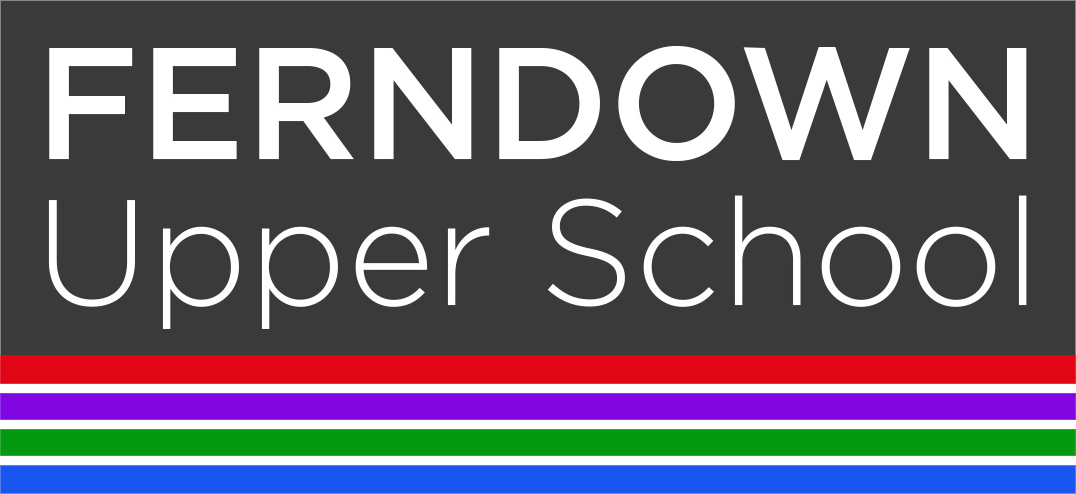Welcome to Ethics and Philosophy
“Studying Ethics and Philosophy put me in great stead for life after school, teaching me transferable skills such as critical analysis, how to form a professional argument based essay and how to view topics from an objective point of view. After completing my A Levels I have since gone on to study Communications and Media at Bournemouth University. Having the ability to study ethics has been extremely beneficial when evaluating serious issues such as the media’s impact on society. I believe there has never been a more fitting time to study Ethics and Philosophy and open your mind to other people’s cultural, religious and political beliefs.” – Zach ex student.
Meet The Ethics & Philosophy Department Staff

Mr. A. Matthews
Ethics And Philosophy Teacher

Mr. D. Hammett
Ethics And Philosophy Teacher
Ethics and Philosophy at Ferndown is a subject that gives students the opportunity to engage with fundamental issues of life. Students develop the skills to analyse their beliefs and others. They have opportunities to debate key issues such as Capital punishment. Students are also helped to develop literacy skills which is shown through excellent results.
Year 9 look at the Ethical topic of Capital Punishment, a unit of work on Philosophy and an introduction to Theology by looking at Old Testament characters.
In Year 10 and 11 we follow the AQA Religious Studies course looking at Religion and Life, War, Peace and Justice, Human rights as well as an in depth study of 2 religions Christianity and Judaism.
Students have the opportunity when possible to meet members of the faith communities and ask questions.
Curriculum Content of each academic year
|
Year 9 |
|
|
Course |
Content |
|
KS3 Locally agreed syllabus |
Capital Punishment Philosophy Old Testament Characters
Introduction to the GCSE from June |
|
How its assessed: |
End of topic GCSE style assessments |
|
Year 10 |
|
|
Course/ Exam Board |
Content |
|
AQA GCSE Religious Studies Christianity & Judaism |
Christian Beliefs Christian Practices Jewish Beliefs & Teachings Jewish Practices Theme B: Religion & Life |
|
How its assessed: |
End of Topic GCSE exam questions |
|
Year 11 |
|
|
Course/ Exam Board |
Content |
|
AQA GCSE Religious Studies Christianity & Judaism |
Theme D: War, Peace & Justice Theme F: Human Rights Theme E: Crime & Punishment |
|
How its assessed: |
End of Topic GCSE exam questions |
|
Year 12 |
|
|
Course/ Exam Board |
Content |
|
OCR A level Religious Studies Philosophy, Ethics & Christian Belief |
Plato, Aristotle, Soul / mind / body, Problem of evil, Religious experience, Teleological Argument, Cosmological Argument, Ontological argument, Natural Law, Situation Ethics, Kantian Ethics, Utilitarianism, Euthanasia, Business Ethics, Augustine’s teaching on human nature, Death & after, Knowledge of God’s existence, Jesus, Christian moral principles, Christian moral action
|
|
How its assessed: |
End of topic essays written. Some under timed conditions, others as homework tasks. |
|
Year 13 |
|
|
Course/ Exam Board |
Content |
|
OCR A level Religious Studies Philosophy, Ethics & Christian Belief |
Religious Language – symbol, analogy, negative, Religious Language – 20th century, Nature of God, Meta-ethics, Conscience, Sexual Ethics, Religious pluralism & theology, Religious pluralism & society, Gender & society, Gender & theology, Challenge of secularism, Liberation theology & Marx
|
|
How its assessed: |
End of topic essays written under timed conditions. |
Careers In Ethics & Philosophy
As an Ethics student, you will have gained skills highly valued by employers, such as analytical and critical reasoning. Students develop the ability to empathise and reflect on their own and others behaviour. Oral and written communication skills are developed as we as the ability to evaluate different views. Studying Ethics has enabled students to go on to a wide range of careers, including law, medicine, the public sector, business management, and journalism as well as the Armed Forces. The time has passed where it was believed all you could do was be a Vicar! The challenge now is what can’t you do with a qualification in Religious Studies, as at the heart of the subject is the development of excellent interpersonal skills which are vital in today’s world.
Labour Market Information – LMI
It is really useful to look at the labour market when considering a career related to Ethics. Many sectors related to Ethics are areas of growth in terms of employment opportunities. Many students who study Ethics go on to work in health care. The NHS is the largest employer in the country. Also within the legal profession the workforce is projected to grow by 5.7% over the period to 2027, creating 3,700 jobs. In the same period, 56.1% of the workforce is projected to retire, creating 36,000 job openings.
The LMI for All portal provides high quality, reliable LMI information – see link below: https://www.lmiforall.org.uk/
Pathways Example Post 16 Routes – Level 3 A Level
- A-Level Religious Studies, Government and Politics, Law, Philosophy, Sociology, Critical Thinking.
Pathways Example Post 16 – Apprenticeship Ideas
- Social Care Worker
- Community Development Worker
- Community Assistant
- Pastoral Customer Service
- Governance & Religious Education Administration
Degree Ideas
- Theology
- Pastoral Care Pastoral Theology
- Pastoral Ministry
- Chaplaincy
- Philosophy

